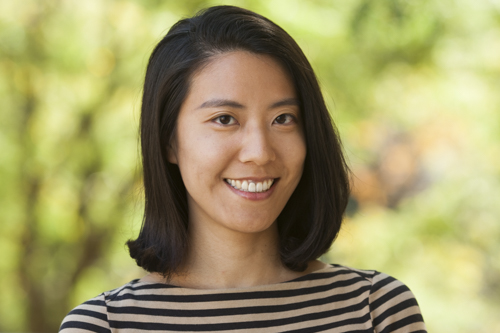
Expertise, Experience, & Activities
Chen-Ting Chang is a graduate student under the mentorship of Professor Lyn Van Swol. Chen-Ting’s research interests lie in the field of CMC, social media, and health communication. Her research centers around determining effective communication strategies to generate insights for interventions designed to promote well-being and support healthy lifestyle changes. A core of her dissertation research is to understand how health information and medical advice can be optimized to promote well-being in human-machine interaction that uses emergent media technologies. Another goal of her research is to gain insight for interventions to correct people’s health misperceptions through identifying factors (e.g., Internet user behavior) associated with the continued influence effect of misinformation.
Chen-Ting is currently serving as a research assistant on a project at UW-Extension to grow Wisconsin’s maple syrup industry through creating public relations with natural resource professionals and serving the public interest and needs of woodland owners using outreach programs and strategic communication. The primary goal of her research at Extension is to help gain insights into the communication strategies natural resource professionals can use to better serve woodland owners and to help drive informed decisions in social media marketing strategies Extension and partners can use to create positive public relationships with maple syrup producers in Wisconsin.
Chen-Ting received her undergraduate degree in English Literature from National Taiwan University and a M.Ed. in Adult and Continuing Education from National Taiwan Normal University. She also has three years of professional experience in public affairs. She worked at a Cultural Affairs Department and the Ministry of Foreign Affairs in Taiwan, where she used public relations strategies to manage positive government images and build strong connections with the public, including promoting policy initiatives and delivering critical information using different types of media outlets and communication channels.
Publications
Chang, C. T., & van Swol, L. M. (2023). Influence of online user information verification on the effect of health misinformation correction: A natural quasi-experiment. Communication Reports. Advance online publication. https://doi.org/10.1080/08934215.2023.2232412
Chang, C. T., Shaw B., Solin, J., Gorby, T., & Robinson, P. (2023). Influence of forester traits and advising approaches on landowners’ intention to follow recommendations about maple sugarbush management among sap producers in Wisconsin. Journal of Forestry. Advance online publication. https://doi.org/10.1093/jofore/fvad027
van Swol, L. M., Chang, C. T., & Gong, Z. (2022). The benefits of advice from outgroup members on decision accuracy and bias reduction. Decision, 10(1), 81-91. https://doi.org/10.1037/dec0000173
van Swol, L. M., Bloomfield, E. F., Chang, C. T., & Willes, S. (2022). Fostering climate change consensus: The role of intimacy in group discussions. Public Understanding of Science, 31(1), 103-118. https://doi.org/10.1177/09636625211020661
van Swol, L. M., Polman, E., Paik, J. E., & Chang, C. T. (2022). Effects of frames on telling different kinds of lies. Cognition and Emotion, 36(7), 1287-1298. https://doi.org/10.1080/02699931.2022.2105307
Bloomfield, E. F., van Swol, L. M., Chang, C. T., Willes, S., & Ahn, P. H. (2020). The effects of establishing intimacy and consubstantiality on group discussions about climate change solutions. Science Communication, 42(3), 369-394. https://doi.org/10.1177/1075547020927017
van Swol, L. M., Chang, C. T., Kerr, B., & Moreno, M. (2020). Linguistic predictors of problematic drinking in alcohol-related Facebook posts. Journal of Health Communication, 25(3), 214-222. https://doi.org/10.1080/10810730.2020.1731632
Chang, C. T. (2016). A fantasied China through the Met’s looking glass. Museology Quarterly, 30(2): 93-103.
Teaching Experiences
Instructor for Interpersonal Communication
TA for Interpersonal Communication
TA for Health Communication